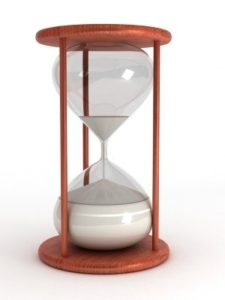Reversible Error to Impose Time Limits on Voir Dire
October 7, 2019

Last week the Fourth District Court of Appeal reversed an aggravated battery conviction based on a trial court improperly limiting the amount of time an attorney could ask questions to a prospective jury panel. Strachan v. State, ___ So. 3d ___ (Fla. 4th DCA 2019).
In Strachan, the trial court entered a scheduling order before trial limiting voir dire to forty-five minutes per side, noting if either side needed additional time they could approach the bench and address their concern with the court. At the conclusion of the State’s allocated forty-five minutes, the court sua sponte asked the State if they needed more time, and if so, how much time. The State requested, and was granted, an additional ten minutes. Defense then questioned the jury for fifty-five minutes and when the clerk called “time,” the Defense requested additional time which was denied. The Defendant specifically identified questions and areas of concern he needed to address with the jury; however, the trial court denied his request and proceeded to the selection process.
The Fourth District Court of Appeal held the trial court improperly denied the Defendant’s request for additional time, specifically noting the following: (1) The Defendant’s voir dire was intended “to elicit useful information for potential cause challenges or peremptory strikes,” (2) The trial court’s questioning of the jury on certain topics did not preclude the Defendant from asking similar questions, (3) The trial court improperly based the “total” amount of time on the State’s request for an additional ten minutes, without consulting with the Defendant, and (4) After the State attempted to avoid error and noted on the record it agreed that Defense should be allowed more time, the trial court improperly disregarded the State’s suggestion. Thus, the Court held that a new trial was granted because the Defendant should have been given additional time to question the jury.
This case reinforces a critical issue for Judges and attorneys regarding placing arbitrary and unreasonable time limitations on voir dire. In fact, the Court actually ended its rationale with a strong admonition to Judges who are confronted with this situation in the future:
We repeat the admonitions which we expressed in Thomany: inflexibility in the amount of time provided for voir dire is not a wise path upon which to continue to travel. Any extension of time would have been far less than the many hours which both sides’ appellate counsel spent on this appeal, and many days less than the amount of time which will be necessary to try this case again.
Id. Thus, the takeaway from this case is that in an abundance of caution, Judges should not impose arbitrary or unreasonable time limits on voir dire, and attorneys who are faced with these situations must make contemporaneous and clear objections to any improper procedure.
(This post was prepared by Kimberly L. Wald, Esq. Kim is a trial attorney at the Kelley|Uustal law firm, located in Fort Lauderdale, FL. For more information please contact Kim at klw@kulaw.com).
